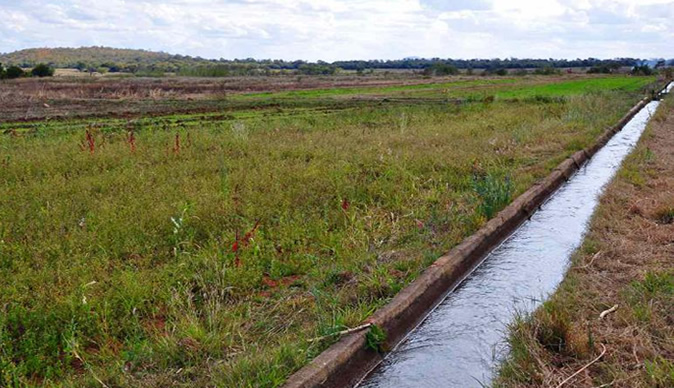By Vumani Mthiyane
Silalatshani small holder famers have expressed concern at the move by the Zimbabwe National Water Authority (Zinwa) to introduce a water rationing schedule at Silalatshani Dam saying the move will adversely affect their crop production.
This comes after the announcement by the water regulatory authority that the dam which suppplies the local irrigation scheme with water was now below the recommended 60 percent threshold.
In a recent interview, Zinwa communications and marketing manager Marjorie Munyonga revealed that the national dam level average was 68.6 percent with dams in Matabeleland South provunces largely affected.
In an interview with CITE, one of the irrigation farmers, Margaret Madlozi Sibanda who has been working at the irrigation scheme since 1977 said the water challenges will affect all the crops that were planted after February as the supply dam is believed to be having less than 2 weeks of water supply.
“This irrigation used to be vibrant during its hey days when we were supplying Gwanda, Insiza and Beitbridge with greens such as maize, vegetables, beans and wheat among other products.
“However, this is a different year because of water rationing. Some of the crops will definitely fail to reach maturity stage since watering is now erratic. I don’t know what is the problem because yesterday I was suppose to water my crops only to be told that it’s not our turn,” she quipped
Another irrigation farmer Shaw Mathuthu said the water situation is dire, an indication that hunger is imminent in the area
“The water situation is very critical. Experts said the supply dam will be dry in June and only early planted crops will mature while the rest will fail. Soon after harvesting maize, most of us then planted soya beans on contact and paprika,” said Mathuthu.
The irrigation scheme is still using the archaic flooding system which depends on gravitation and canals.
Asked about changing the method and adopt new farming technologies such as overhead sprays, the irrigation chairperson, Joel Mzalili Ndlovu said they will not be able to pay for the electricity needed to power the system.
“I totally agree that the flooding irrigation method wastes a lot of water but at the moment we cannot afford to use overhead sprays because Zesa is beyond the reach of many here at Silalatshani irrigation,” said the chairperson.
The irrigation was established in 1965 and has 865 farmers operating in 8 sections.
The farmers also indicated that they are faced with a lot of chalenges including lack of equipment such as tractors and water pumps.

